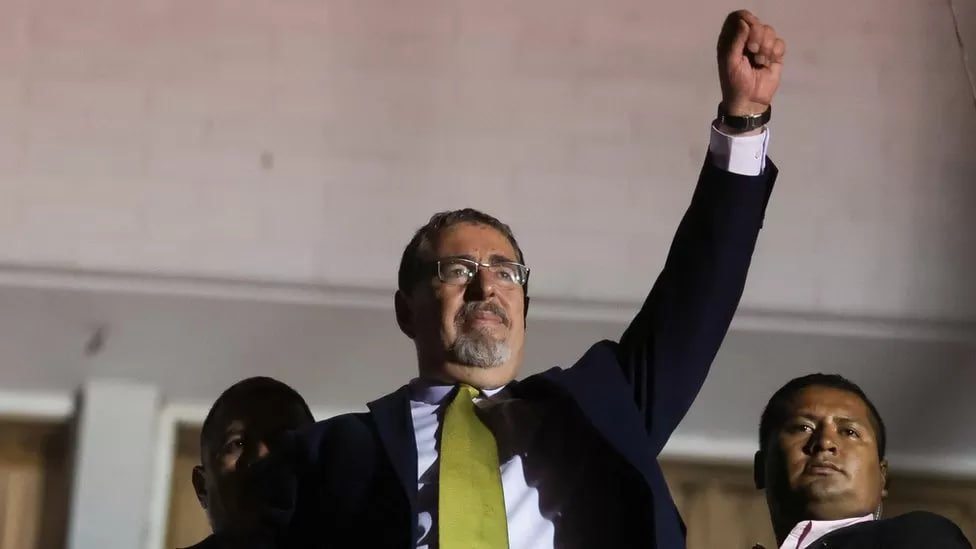Guatemala Uses Bitcoin Blockchain for Presidential Elections

Guatemala has become the world's first nation to utilize the BTC blockchain for presidential election vote tallying. Remarkably, the Bitcoin network was not employed for cryptocurrency transactions; instead, it played a pivotal role in guaranteeing transparency and upholding democratic principles in the voting process.
Blockchain in Elections: A Historical Overview
The use of blockchain technology for voting isn't a new endeavor. In 2018, blockchain was instrumental in recording voting results for the Sierra Leone presidential elections. In 2020, it was leveraged in the USA to facilitate mandatory remote voting amidst the COVID-19 pandemic.
In the same year, as part of the Smart City initiative in Tsukuba, Japan, the innovative digital startup LayerX was born, leveraging a distributed ledger system for state elections. Presently, this network is actively used to log public opinions on various social initiatives, though it has not yet been employed for national elections.
Attempts to digitize the voting process were also made in South Korea and Thailand but to no avail. These initiatives encountered setbacks mainly due to issues with voters losing or forgetting their identification keys (passwords), finding themselves sidelined in the process. Even the supplementary feature of facial recognition didn’t salvage these situations.
Overall, voters remained skeptical about such a transition, primarily because they lacked confidence in the system's ability to ensure the accurate counting of their votes. The adoption of digital voting was largely seen as a contingency measure during the pandemic.
Now, Guatemala has opted to venture into this realm.
What sets apart voting in Guatemala from other countries?
When addressing the concept of electronic voting systems endorsed by various country regulators, it’s crucial to underline a key point: distributed ledger technology is not synonymous with blockchain.
Every blockchain is a form of distributed ledger, but not every distributed ledger is a blockchain.
Blockchain technology presupposes the equality of all nodes and necessitates a consensus among them to validate any alterations in the ledger, such as finalizing transactions within the Bitcoin network. Conversely, a distributed ledger is simply a decentralized database, potentially overseen by central servers, with delegated authority to update data, like in the case of notarial databases.
For example, the national archives of Georgia and Estonia are built on Distributed Ledger Technology (DLT). This, however, does not grant every citizen the ability to connect and initiate their transactions. Only government officials hold the keys, and the data is stored on a limited number of nodes, all of which are controlled by the government.
In this context, decentralization serves as a shield against cyber attacks on vital databases, not as a tool for equality and transparency. The choice of this information storage method is strictly motivated by security concerns.
Guatemala has embarked on a unique path to enhance its democratic processes. The country's Supreme Election Tribunal announced its commitment to using the Bitcoin blockchain for more transparent elections.
To achieve this, they've deployed a tool called OpenTimestamps, developed by Peter Todd, one of the original cryptocurrency blockchain developers.
This program assigns timestamps to each ballot and incorporates the data into the BTC network.
It also provides public access to a registry containing records of all voters, enabling every Guatemalan participant to verify the accurate counting of their votes.
This move has instilled widespread confidence in the fairness of Bernardo Arevalo's victory. Guatemala's elections proceeded peacefully, in contrast to the typical unrest observed in Central America.

Bernardo Arevalo won the elections in Guatemala. Source: BBC
The citizens of a country, long rated among the most corrupt jurisdictions in the world, managed to leverage Satoshi Nakamoto's legacy to conduct democratic elections and change the ruling elites.
Bernardo Arevalo will undergo the inauguration process as the lawfully elected president on January 14, 2024.
Recommended

